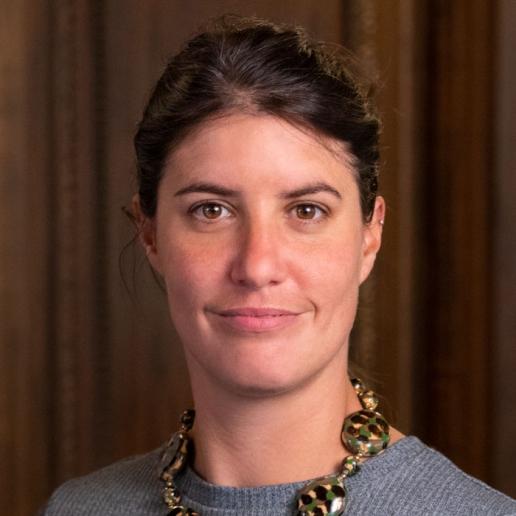Placement: NYU Langone Health
Mentor: Leora Horowitz, M.D., M.H.S., Associate Professor, Department of Population Health; Associate Professor, Department of Medicine; Director, Division of Healthcare Delivery Science; and Director, Center for Healthcare Innovation and Delivery Science, NYU Langone Health
Co-mentor: Devin Mann, M.D., M.S., Associate Professor, Department of Population Health; Associate Professor, Department of Medicine; and Senior Director, Information Innovation at MCIT, NYU Langone Health
Project: Improving Access to Digital-First Primary Care for Underserved Populations
Holly Krelle, M.Phil., is a 2019–20 U.K. Harkness Fellow in Health Care Policy and Practice. Krelle is a principal analyst at the Prime Minister’s Implementation Unit, where her team drives the delivery of the prime minister’s top domestic priorities, identifying issues and conducting rapid research to intervene where policy is found to be off-track. She leads on health work force analysis and digital technologies. Prior to joining the unit, Krelle worked as a senior analytical manager in NHS England, where her work included leading the evaluations of new digital models of primary care, such as Babylon GP at Hand. She is a social researcher by profession and began her career at the research consultancy ICF International, where she led research and evaluation projects across health, social care, and education for the U.K. government and European Commission. She holds a first class degree in human sciences from the University of Oxford, and an M.Phil. in applied biological anthropology from the University of Cambridge.
Project Overview: Innovation centers – such as NYU’s Center for Healthcare Innovation and Delivery Science – are increasingly common within large academic hospitals in the US. They use methods including design-thinking, rapid RCTs, and lean/six sigma, all with the aim to quickly develop, operationalize and robustly evaluate new innovations (often digital innovations) within a hospital system. Innovation centres are built from a recognition that healthcare systems have always struggled to do two things: (1) to spread innovative, successful ideas from one part of a healthcare system to another and (2) to support individual hospitals or clinicians to rapidly test, evaluate and scale their own interventions. When they are functioning well, innovation centers can make applied research local by combining the capabilities of robust academic analytical and consultancy support, with an approach that is highly operational and embedded within a hospital.
To date, most of the research on innovation centers has focused on how well they generate ideas, rather than how effectively these ideas are operationalized and evaluated. As a result, there has been little work on how these centers operate and the outcomes they achieve. This study will focus on how the centers derive their power and influence, and how they operationalize and evaluate their work. It will include four to five deep-dive case studies of centers across the US to understand what successes have been achieved, and how. Interviews with innovation leads from two to three major hospital trusts within the UK will also be conducted, to understand the potential for these centers within the NHS; what the barriers to implementation are; and what key learnings can be gained from the U.S. context.
Harkness-Related Publications:
H. Krelle, J. Dodson, L. Horwitz. Virtual Primary Care—Is Its Expansion Due to COVID-19 All Upside? JAMA Health Forum. 2020.

